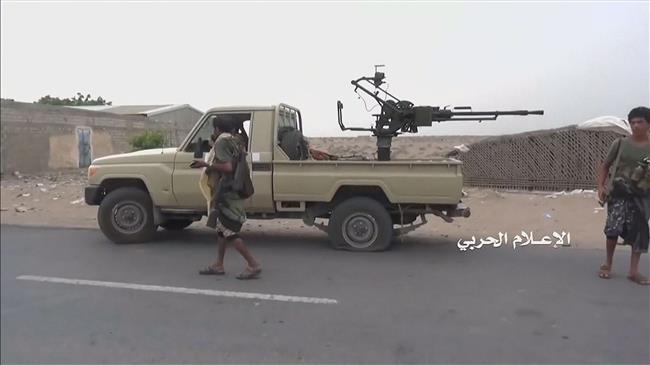
RNA - Much can be learned from the recent fighting in Hodeidah and the failed peace initiatives of the past, though:
- According to a new report by the United Nations, More than 121,000 people fled Hodeidah due to attacks by Saudi-led coalition forces. Humanitarian agencies have verified more than 17,350 households have been displaced since June 1. These people need food, emergency kits, and other life-saving support. It is wishful thinking to hope that Saudi Arabia is or will be carrying out any humanitarian activities to alleviate the pains and sufferings of Hodeidah’s desperate communities.
- The same report confirms that half of children are unable to attend school because there are no schools left as they have all been damaged or leveled to the ground by US-backed, Saudi-led airstrikes. Many health institutions have also closed or suspended operations because of the ongoing airstrikes on the strategic seaport. Again, it is wishful thinking to hope that now or after the war Saudi Arabia will send money to impoverished Yemen to rebuild is schools and health institutions. Riyadh didn’t destroy them only to rebuild them during the war or later.
- There is a reason why Saudi Arabia and company never bother to keep the key port of Hodeidah open or work toward a political solution for Yemen. They all prefer a neighbor that has failed, is unstable, and has convenient buffer zones. This way they can continue their endless war and occupation in order to divide and rule, to implement their expansionist policies and plans throughout the region and beyond.
- True, the Saudis use money and influence to avoid international measures against them at the UN. But that does in no way give an excuse for the world body not to exert pressure on Riyadh to engage constructively with international efforts to progress a political solution. The three-year-plus bloodshed reaffirms that political solution remains the only way to end the conflict.
- Hodeidah is the entry point for some 70 percent of imports to Yemen, where eight million people face imminent famine, and provides a lifeline for the 22 million people dependent on humanitarian aid. The UN should recognize the importance of the port and take any decisive action essential to keep it open. The UN could even oversee the port’s operations to ensure it is no longer a deliberate target for Saudi Arabia, the United Arab Emirates, and their US-NATO allies.
- Saudi Arabia has frequently claimed that the resistance group of Ansarullah has no intention to give a chance to UN diplomatic efforts, while the resistance group has always had fruitful talks with UN envoys in a bid to avert all-out fighting in the strategic port city of Hodeidah and elsewhere. Saudi Arabia and the UAE are behind the current escalation. They are the ones that made the port city as their latest battleground in the failed conflict.
- A peace conference needs the right people to succeed. The Saudis and their NATO allies are not willing to make political decisions. The kind of decisions that the UN needs have never been there: lifting the illegal blockade; halting the airstrikes on civilian objects; ending the man-made conflict as a goodwill gesture to encourage Ansarullah to remain a party to the talks. The Saudi-led coalition wants capitulation in their conference, raising doubts and concerns over its credibility which almost always represents and protects their interests.
According to Fars News Agancy, in the prevailing environment, what Yemen needs is some hope for a possible ceasefire and peace deal. Logic dictates that it is the UN which is in the best position to lead this process – not Saudi Arabia and certainly not a war ally like France. The process should also receive support from all the countries that are presenting goodwill, that want to see progress, and that agree to a ceasefire not just in Hodeidah but across Yemen.
Millions of people are still suffering under the US-backed, Saudi-led war and blockade. The UN Security Council can no longer afford to be silent on the crisis, much less continue to be lenient on Saudi Arabia’s gross violations of human rights and war crimes. Political commitment on the part of the UN and international support is indeed very much needed if any peace process is to be successful in the future, although Riyadh, Abu Dhabi and their allies remain adamant to peace.
847/940